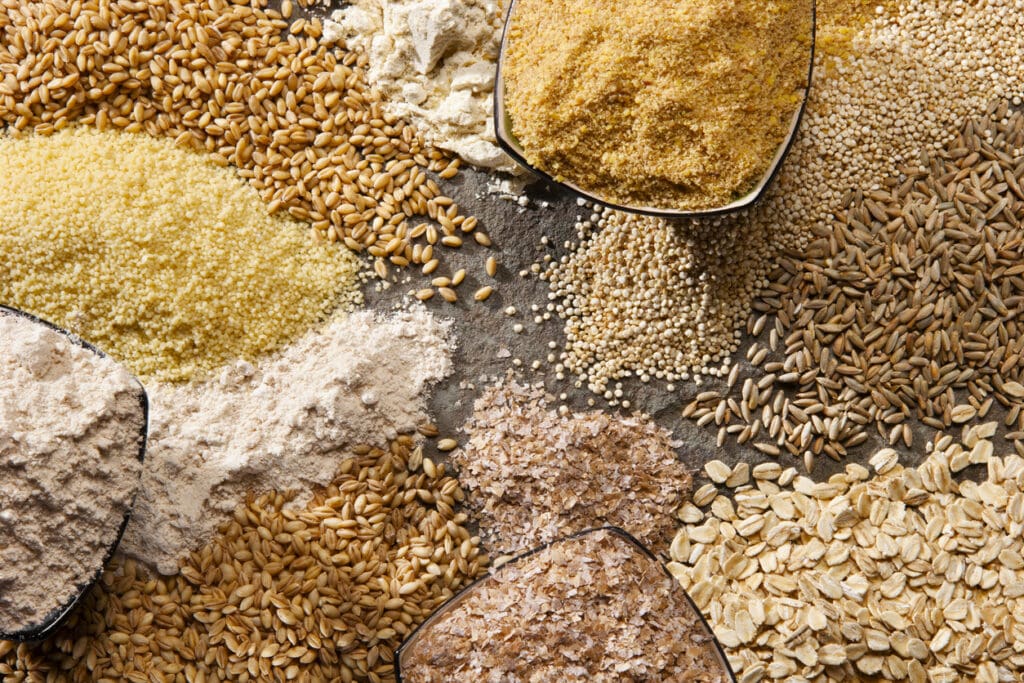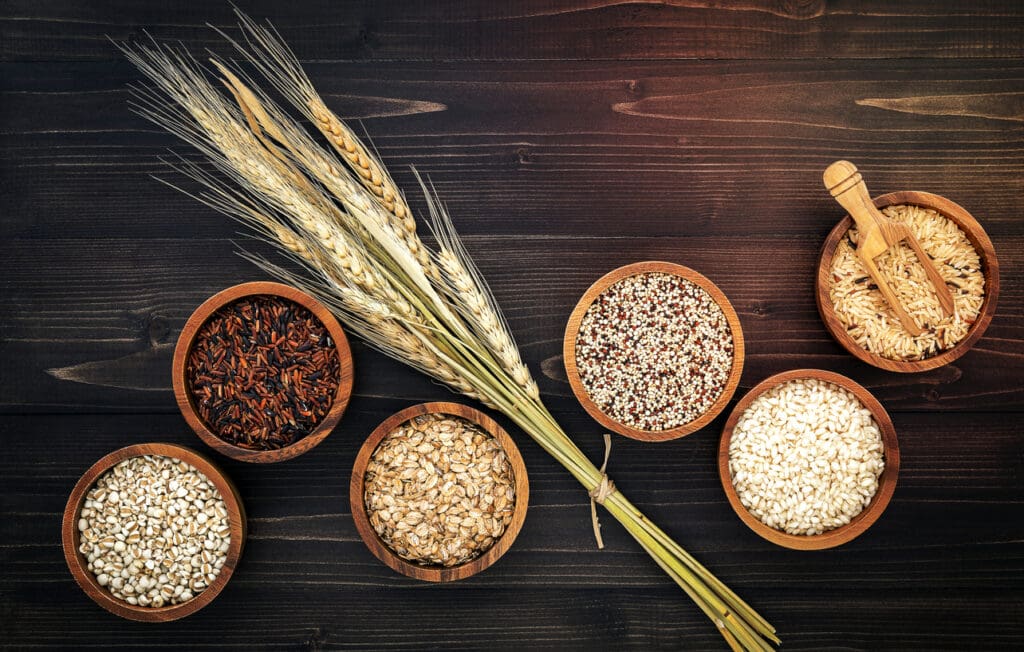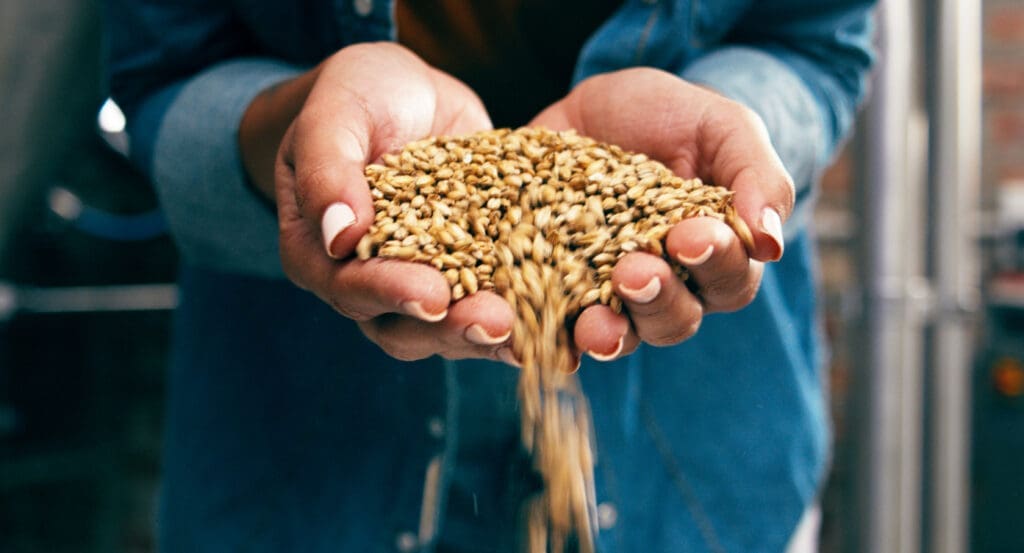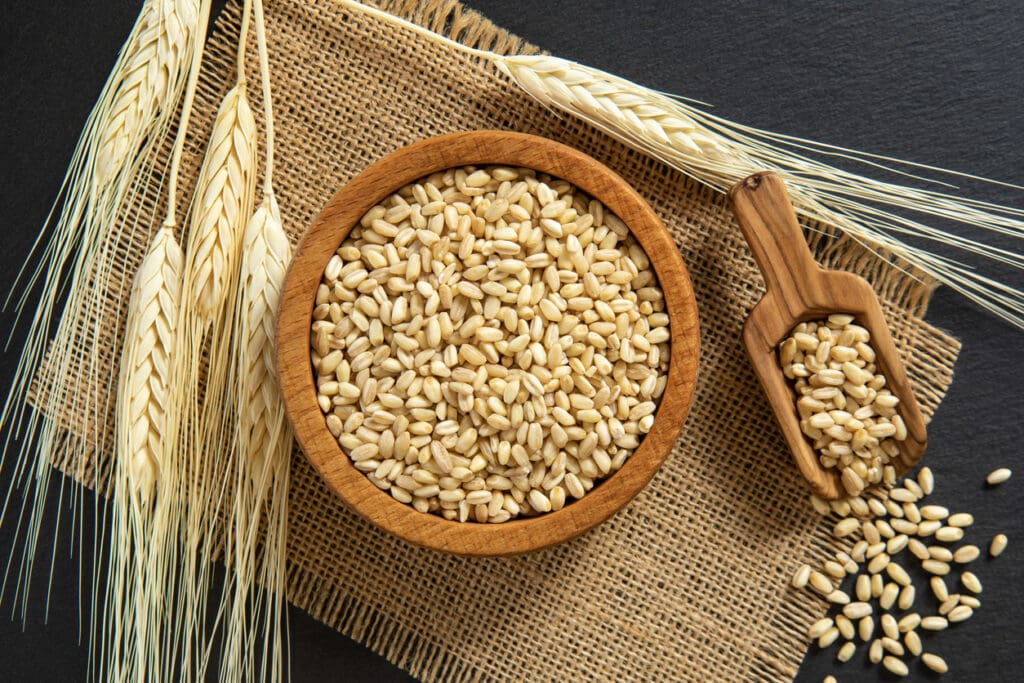
In today’s health-conscious world, more people are turning to organic foods to improve their well-being. Among these choices, organic grains stand out for their nutritional benefits and potential health advantages. But what exactly makes organic grains a superior choice? In this article, we’ll explore the organic grains benefits, the health benefits of organic grains, and why choosing organic grains can be a wise decision for your overall wellness.

Organic grains are cultivated without synthetic pesticides, herbicides, or genetically modified organisms (GMOs). They are grown using sustainable farming practices that promote soil health and reduce environmental impact. This natural approach ensures that the grains maintain their nutritional value while minimizing exposure to harmful chemicals.
Unlike conventionally grown grains, organic grains go through stricter regulations to ensure they meet high-quality standards. The absence of artificial fertilizers and chemical treatments leads to better soil health, which in turn produces more nutrient-dense crops. This not only benefits personal health but also supports a more sustainable agricultural system.
Organic grains are crops that are grown, harvested, and processed without the use of synthetic pesticides, genetically modified organisms (GMOs), or artificial fertilizers. These grains are cultivated using organic farming practices that prioritize soil health, biodiversity, and efficient water use. This sustainable approach to agriculture not only benefits the environment but also ensures that the grains are packed with essential nutrients, fiber, and healthy fats. By choosing organic grains, you are opting for a natural and wholesome addition to your diet, free from harmful chemicals and rich in nutritional value.
Organic farming methods involve a holistic approach to agriculture, focusing on natural processes and techniques to promote soil health, conserve water, and support biodiversity. Organic farmers employ practices such as crop rotation, cover cropping, and composting to maintain soil fertility and prevent erosion. These methods help create a balanced ecosystem where crops can thrive without the need for synthetic chemicals. Natural pest control methods, like introducing beneficial insects or using physical barriers, are also used to minimize pesticide use. By fostering a healthy and diverse environment, organic farming practices result in more resilient and nutrient-dense crops, contributing to a sustainable food system.

Organic whole grains are often richer in essential nutrients such as fiber, vitamins, and minerals. Because they are grown in healthier soil without chemical interference, they retain more of their natural goodness, providing the body with the nourishment it needs. Brown rice, for example, is a nutrient-dense organic grain that can be incorporated into a healthier diet.
In addition to their enhanced nutrient profile, organic grains are typically less processed than conventional grains. This means they maintain more of their original fiber and nutrient content, making them a better choice for those looking to optimize their diet with wholesome, unrefined foods.
One of the most compelling organic grains benefits is the absence of synthetic pesticides and fertilizers. Conventional grains are often treated with chemicals that may leave harmful residues. By opting for organic grains, you reduce your risk of ingesting these unwanted substances, promoting a cleaner diet.
Long-term exposure to pesticide residue in food has been linked to various health concerns, including hormone disruption and potential carcinogenic effects. Choosing organic grains helps minimize these risks while also reducing the environmental burden caused by conventional farming practices.
Organic whole grains are excellent sources of dietary fiber, which supports healthy digestion. A fiber-rich diet can help regulate bowel movements, reduce bloating, and promote a balanced gut microbiome. Choosing organic whole grains nutrition can contribute to a healthier digestive system overall.
Since organic grains are grown without synthetic chemicals, they are less likely to contain residues that may disrupt gut flora. A well-balanced gut microbiome plays a crucial role in nutrient absorption, immune function, and overall well-being, making organic grains a valuable addition to a health-conscious diet.
Studies suggest that organic foods, including grains, may help reduce the risk of chronic diseases such as heart disease and diabetes. Whole grains are known to lower cholesterol levels and regulate blood sugar, making them a beneficial choice for long-term health. Organic production methods contribute to this reduced risk by ensuring higher nutrient density and minimizing exposure to harmful chemicals.
The high antioxidant content found in organic grains may also provide additional protective benefits against oxidative stress, which is a key factor in aging and disease development. By incorporating organic grains into your diet, you may support overall longevity and wellness.
Many consumers report that organic grains have a fresher, more robust flavor compared to conventionally grown grains. Since they are free from artificial preservatives and additives, their natural taste shines through, making meals more enjoyable.
The careful farming practices used to grow organic grains often result in higher-quality crops. Without the interference of synthetic chemicals, the grains are allowed to mature naturally, developing richer textures and deeper flavors that enhance the overall dining experience.

Organic grains offer several environmental benefits, including:
These benefits make organic grains a responsible choice for those looking to support environmental sustainability while enjoying nutritious and delicious food.
Organic products, including grains, are certified by reputable organizations such as the USDA Organic program. To be labeled as organic, products must meet strict standards, including:
When shopping for organic grains, it’s essential to read labels carefully and look for certification marks to ensure authenticity. By choosing certified organic products, you can be confident that you are supporting sustainable farming practices and consuming food that is free from harmful chemicals.
Switching to organic grains is not just a trend—it’s a step toward better health and a more sustainable planet. With their higher nutritional value, lack of harmful chemicals, and potential for disease prevention, organic grains are a smart addition to any diet.
Beyond personal health benefits, choosing organic grains also supports ethical and environmentally friendly agricultural practices. Organic farming reduces soil degradation, conserves water, and promotes biodiversity, making it a responsible choice for future generations. Additionally, organic food as a whole emphasizes these broader benefits, ensuring that farming practices are safe, sustainable, and beneficial for both people and the planet.
Incorporating organic grains into your meals can have a lasting positive impact on your health. Whether you’re looking to improve digestion, boost nutrient intake, or simply enjoy better-tasting food, choosing organic is a wise investment in your well-being. Next time you’re grocery shopping, consider reaching for organic rice, oats, quinoa, or whole wheat products and experience the difference yourself!
Would you like to learn more about incorporating organic grains into your diet? Let us know in the comments below!
